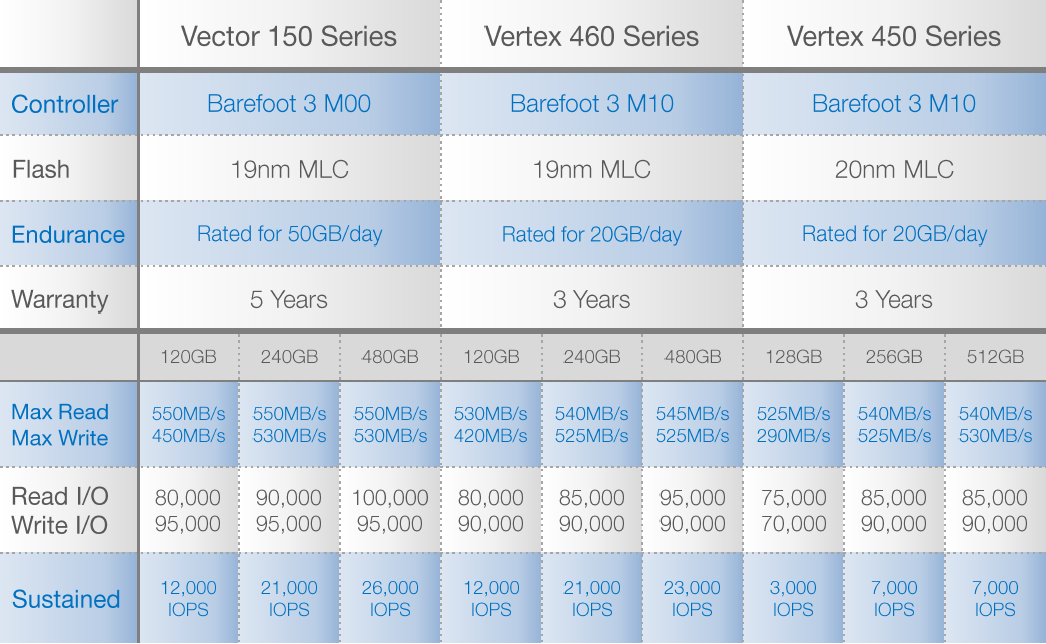barnsley
born in a.....
The first product to come crawling out of the ashes from OCZ is their new vertex 460s. These ssds come with toshiba's NAND flash memory. They come with a 3 year warranty and they are rated at 20GB/day.

Pricing is reasonable as well, The 120GB version will cost $99.99 (£60 approx), the 240GB version will cost $189.99 (£115) and the 480GB one will be priced at around $359.99 (£218).
More facts:

now, many people here at OC3D have had awful experience with the previous OCZ. I, for example, have had all of the OCZ ssds I've used die on me within a few months. Could this 'new' OCZ be a rival to Samsung's SSDs or are they still up there with Thermaltacky on the hate list of this forum.

Pricing is reasonable as well, The 120GB version will cost $99.99 (£60 approx), the 240GB version will cost $189.99 (£115) and the 480GB one will be priced at around $359.99 (£218).
More facts:

now, many people here at OC3D have had awful experience with the previous OCZ. I, for example, have had all of the OCZ ssds I've used die on me within a few months. Could this 'new' OCZ be a rival to Samsung's SSDs or are they still up there with Thermaltacky on the hate list of this forum.
Last edited:
